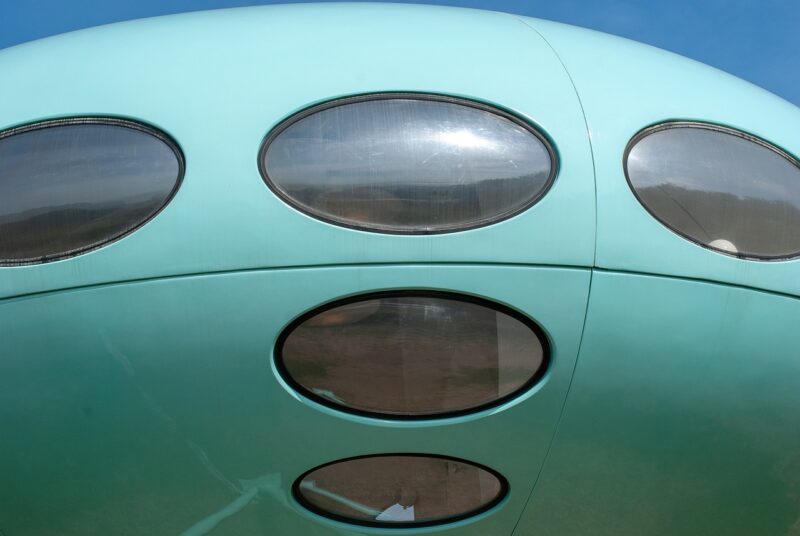How the Concept of Utopias Evolved Through Literature and Philosophy
November 17, 2024

The concept of utopia has long fascinated thinkers, writers, and society at large, shaping our visions of an ideal world.
From ancient texts to contemporary discourse, literature and philosophy have played a pivotal role in defining and redefining what a utopia means, how it can be achieved, and whether it is a realistic endeavor or a mere figment of imagination.
This article explores the evolution of utopian thought through the ages, examining how various periods and cultural contexts have shaped the concept into what we understand today.
1. Ancient Roots: The Beginnings of Utopian Thought
The word ‘utopia’ was coined by Sir Thomas More in his 1516 work of the same name, meaning ‘no place’ in Greek, but the roots of utopian thought reach back to ancient civilizations.
In many cultures, visions of ideal societies can be found in religious texts, philosophical writings, and folklore.
For example, Plato’s “Republic,” written around 380 BC, outlines his vision of an ideal society ruled by philosopher-kings—individuals governed by reason and wisdom rather than personal gain.
This precedent set the stage for future explorations of ideal societies, highlighting the importance of governance, ethics, and the nature of justice.
Plato’s influence is apparent in later utopian literature, which often revolves around the quest for a society where justice prevails and each individual contributes to the common good.
As philosophy began to intertwine with emerging political theories, the groundwork for utopian ideals set forth by thinkers such as Aristotle, Confucius, and the ancient Romans began to crystallize around notions of communal living and social harmony.
2. The Renaissance and the Birth of Modern Utopian Literature
The Renaissance marked a period of exploration and rediscovery of classical ideas, significantly influencing cultural production across Europe.
Thomas More’s “Utopia” serves as a crucial turning point in utopian literature.
His fictional island society is depicted as a contrast to the social and political realities of 16th-century Europe, where issues of poverty, inequality, and war were rampant.
In “Utopia,” More introduced the idea of a society based on communal property, religious tolerance, and rational governance.
While the utopia itself is fictional, it provides serious commentary on the socio-political conditions of More’s time, sparking important discussions around social reform and the possibilities of human nature.
Such discussions ushered in a lineage of literary works—Rabelais’ “Gargantua and Pantagruel,” Campanella’s “The City of the Sun,” and Bacon’s “New Atlantis”—that not only mapped utopian societies but also interrogated human morality, governance, and ethics.
Encouraged by humanist ideals, these works emphasized progress, scientific inquiry, and individual potential, anchoring utopian visions in a belief that human societies could achieve perfection through reason and virtue.
3. The 19th Century: Utopia as Social Critique
As societies began to industrialize, the 19th century saw a shift in the portrayal of utopia.
Utopian literature began to address the disparities created by capitalism, urbanization, and class struggle.
Famous thinkers like Karl Marx and Friedrich Engels critiqued capitalist society in their works, envisioning a communist utopia as a solution to systemic inequality.
In literature, authors like Edward Bellamy in “Looking Backward” portrayed a future America transformed into a socialist utopia, showcasing a society where cooperation replaced competition, and technological advancements eliminated poverty.
The utopian concepts now focused on collective well-being over individualism, advocating for radical reforms in political and economic systems.
This becomes evident in the flourishing of socialist and anarchist movements that sought to create ideal societies through practical means.
The works of feminist writers, too, contributed to the evolution of the utopian discussion, integrating gender equality into the fabric of ideal societies.
Charlotte Perkins Gilman’s “Herland,” for instance, presents a community of women creating a society free from the male gaze and binding expectations.
This era of utopian literature emphasized both social critique and practical strategies to realize radical societal changes.
4. The 20th Century: Dystopia and the Critique of Utopian Thinking
As the 20th century evolved, the concept of utopia began to darken, giving rise to the dystopian literature genre.
World Wars, totalitarian regimes, and the existential crises of modern life prompted a reevaluation of utopian ideals.
Works such as Aldous Huxley’s “Brave New World” and George Orwell’s “1984” depicted societies that had once aspired to utopian principles but devolved into oppressive systems, illustrating the fragility of freedom and individual choice.
These critiques did not dismiss the notion of a perfect society altogether; rather, they highlighted the risks of utopian thinking when paired with authoritarianism, blind idealism, or technological control.
As a result, dystopian literature sought to warn society of the perils that might arise if the pursuit of utopia is untempered by ethical considerations.
Further, postmodernist critiques of utopia emerged, questioning the very nature of utopian aspirations.
Writers such as Michel Foucault and Jean-François Lyotard emphasized how socio-political contexts shape visions of ideal societies, arguing that the search for a singular, coherent utopia ignores the complexities of human experience.
5. Contemporary Reflections: Utopia in the 21st Century
Today, utopian thought continues to adapt, responding to the unique challenges of contemporary society—globalization, environmental crises, and technological advancement.
The notion of utopia has shifted towards more localized, pluralistic visions that embrace diversity and ecological consciousness.
Modern authors like Ursula K. Le Guin, in “The Dispossessed,” explore anarchist utopian ideals through the lens of anarcho-syndicalism, emphasizing the importance of community and cooperative structures.
Writers often depict utopia not as a fixed destination but as a journey—a dynamic process rather than a final goal.
This allows for multiple interpretations and inclusivity, acknowledging that each culture may have its own understanding of utopia.
Additionally, climate fiction (or cli-fi) like Kim Stanley Robinson’s “New York 2140” envisions sustainable futures, prompting readers to think critically about ecological and social sustainability within their own lives.
As we navigate the complexities of 21st-century issues, new forms of utopian literature raise essential questions about what an ideal society could look like and how we might collaboratively pursue it.
Conclusion: The Future of Utopian Thought
The evolution of the concept of utopia through literature and philosophy demonstrates its enduring relevance to the human experience.
From ancient philosophical musings to dystopian critiques and contemporary explorations, utopian thought has consistently grappled with our aspirations and limitations as a society.
As philosophical dialogue continues to expand, the future of utopian visions rests on our ability to critically assess our environments and creatively imagine paths to a more just and harmonious world.
This continuous journey through utopia urges individual and collective efforts to engage in building realities that reflect our dreams and desires when applied thoughtfully and intentionally.
In doing so, we not only honor our past explorations but also construct a brighter future where utopia is within our reach.








